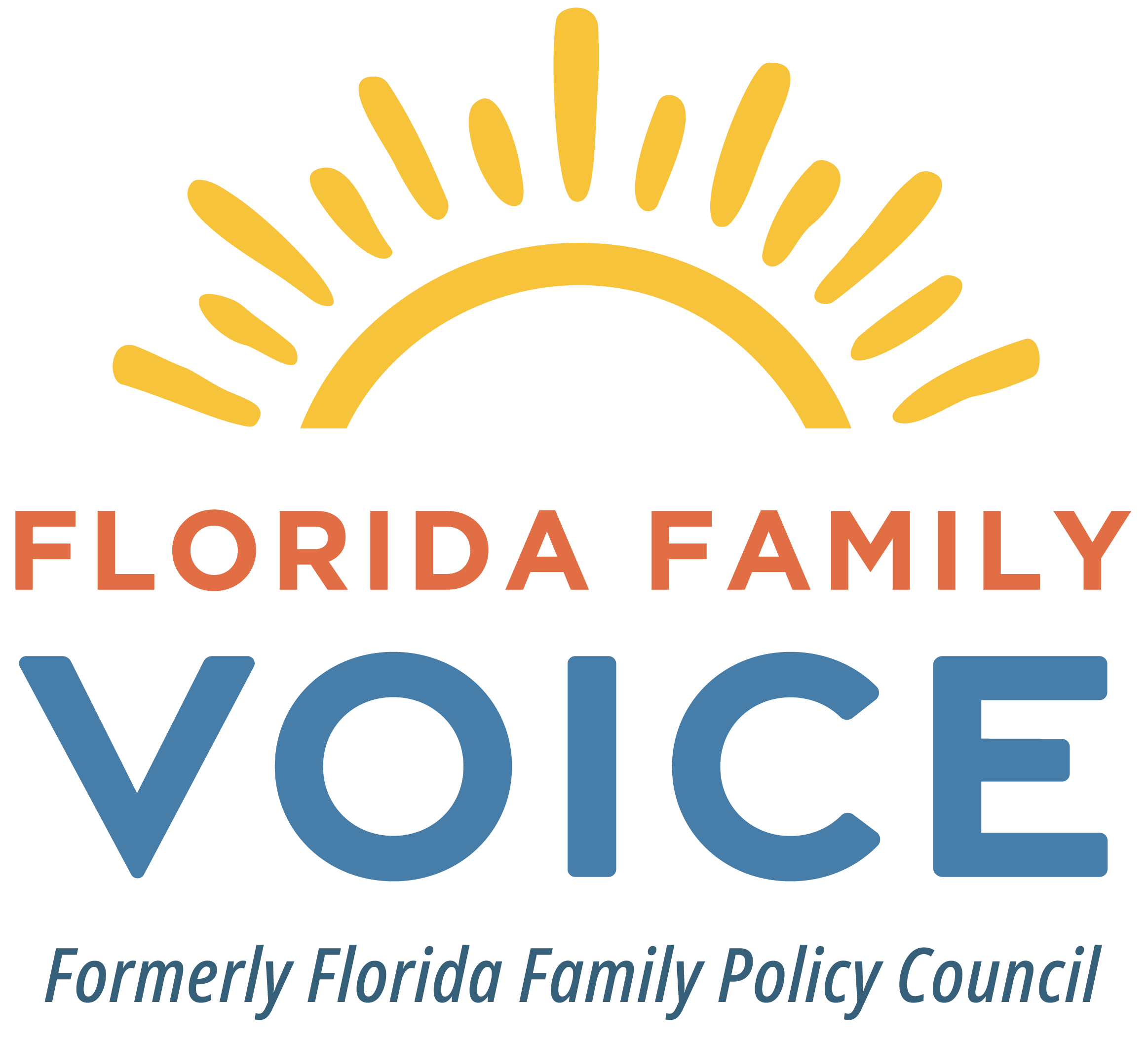But Questions About Family, Religion and Judicial Philosophy Were
Intentionally Omitted, Making the Form Largely Unhelpful to Values Voters
(Orlando, FL) After over three years of deliberation and discussion about what types of questions the form would ask, The Florida Bar finally approved and made available a “Judicial Candidate Voluntary Self-Disclosure Statement”. The form which was intended to give voters background information on judge candidates states: “It came to the attention of the Bar that voters felt like they did not have sufficient information to make educated decisions on judicial candidates.” Unfortunately, many voters still feel they lack any adequate information to know who the lawyer really is behind the black robes, even if the judge candidate decides to complete the form because of the questions the form fails to ask. The Florida Family Policy Council has posted all the completed forms along with all judge candidate websites available online at www.FLfamily.ORG .
The Bar’s creation of this judicial candidate self-disclosure form, was in direct response to the lawsuit filed by the Florida Family Policy Council’s “Judicial Accountability Project” in August of 2006. The lawsuit brought originally against the Florida Bar and the Judicial Ethics Advisory Committee (JEAC) presented a First Amendment constitutional challenge to the “gag order” which prohibits judge candidates from announcing their views on disputed matters of law and policy and threatens to discipline them if they announce their views on an issue and refuse to recuse (remove) themselves from a case on a similar matter that comes before them.
In October of 2006, FFPC President, John Stemberger, debated Florida Bar President Harry Cox before a room full of judges, lawyers and reporters at a Federalists Society meeting in Tallahassee. Cox had little to say in response to Stemberger’s charge that voters lacked any substantive information before electing a judge. Stemberger argued that “County and circuit judges in Florida are being chosen by the shapes and colors of their yard signs or whether their name sounds American or foreign.” Shortly thereafter, the Bar started the process of debating the formulation and content of the “Self-Disclosure Statement”.
The Self-Disclosure Statement, which does ask extensive questions about the judge candidate’s academic credentials and legal experience, does not ask any questions regarding:
1) Marital and family status, children and divorces.
2) Criminal convictions (other than for dishonesty and or moral turpitude) or bankruptcies.
3) Religious affiliations, prior elected offices held, memberships in non-legal or private community, civic, religious or political organizations.
4) Charitable contributions made to groups described above.
5) Which cases handled were most significant to the candidate and why.
6) Whether the candidate has ever personally filed suit or been sued and why.
7) Judicial philosophy, judicial temperament or views on the role of the court.
8) Questions about whether they agree or disagree with the holdings of high profile and controversial case law decided by Florida courts.
Most of the above omitted questions, and many more, are asked of judicial candidates when they apply to become appointed judges by the Governor through the extensive application process of the Judicial Nominating Commission.
In total, over 70 candidates responded by filling out the new form in 59 races– about a 48 percent participation rate. In the 32 circuit court races, at least one candidate responded in 29 races. In the 27 county court races, at least one candidate responded in 19 races.
FFPC President John Stemberger released the following statement critical of the form’s inadequacies:
“The Self Disclosure Statement form is weak and unhelpful as it goes out of its way to intentionally hide from the voters who the judge candidate really is as a person and conceal their beliefs and judicial philosophy. The deficiencies start with the fact that the form is “voluntary”. Candidates applying to be appointed as a judge are required to complete the extensive Judicial Nomination Commission (JNC) form which is much more thorough and insightful as to what a lawyer’s personal values and beliefs are. Why should the Governor have more information on judge candidates than ordinary voters? This new form, while a step in the right direction, continues to preserve the monopoly of information on lawyers and judges in the local bar organization. Voters have a right to know who the judge candidates really are and what they believe. While the FFPC lawsuit was unsuccessful, we will continue to diligently work to find creative ways to inform voters with information which helps to reveal judicial philosophy.
# # #
